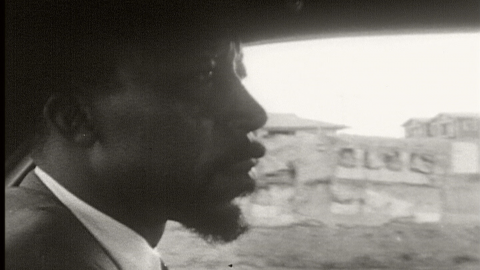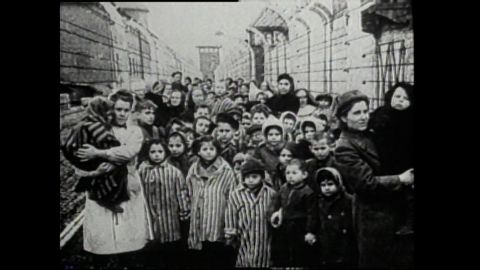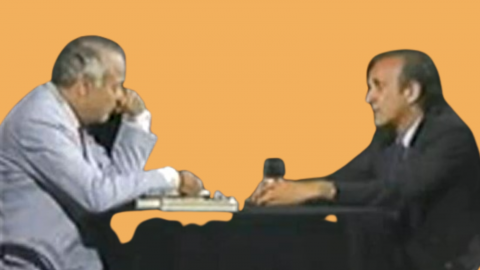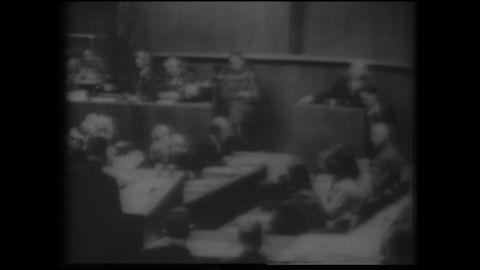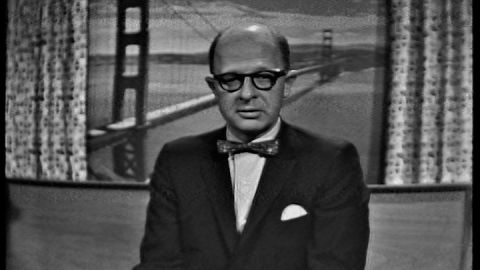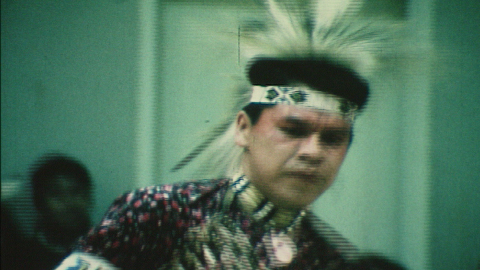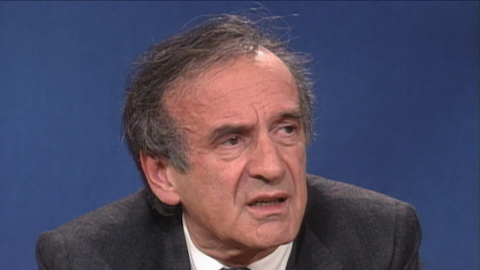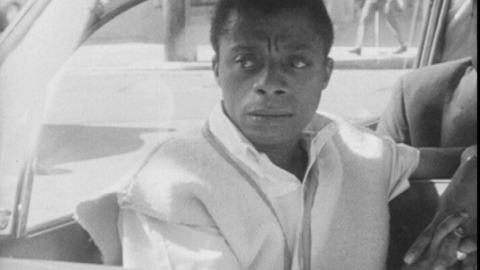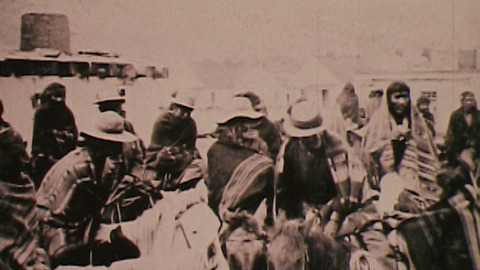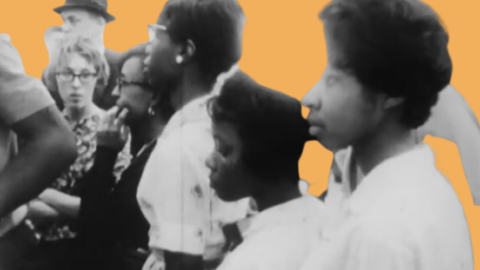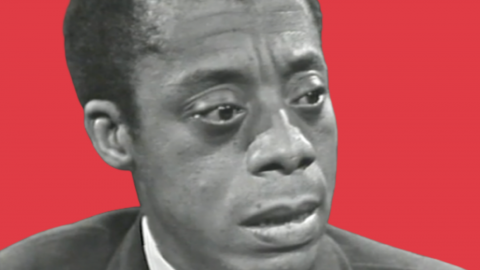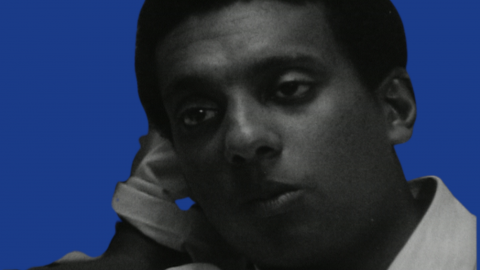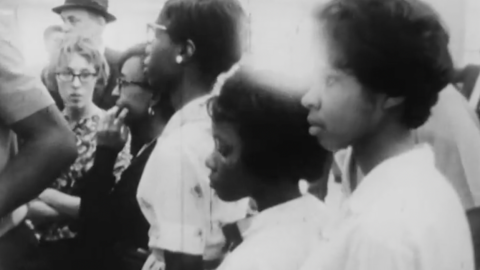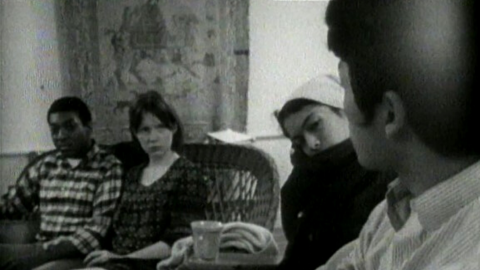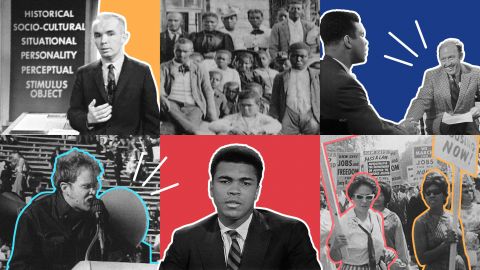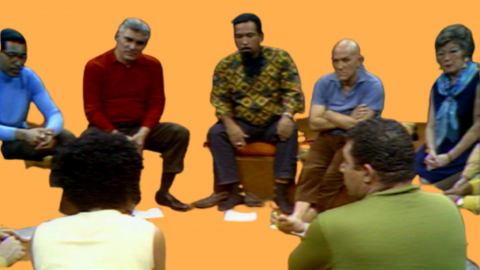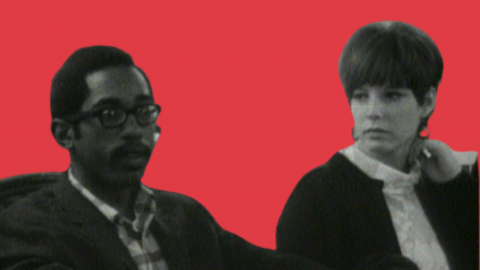[bright music]
- [Narrator] The following program is from NET,
the National Educational Television Network.
- The people now called Negroes are the most written about
and the least understood of the world's people.
- This term, Negro demoralizes us and is detrimental.
I feel it doesn't give us,
give us any association past the slave ship.
- I think that the first tasks of people of African descent,
whether in the United States or in Africa or elsewhere,
is to get rid of this slave name, Negro.
- This curious word Negro was seldom
or never used in Africa itself
and this word has no meaning
or no worthwhile meaning at all in Africa.
I would doubt myself
if it has any useful meaning anywhere else.
- What is a Negro? A simple question.
But the answer's not so simple.
[gentle music]
My name is Ossie Davis.
I'm an actor and a writer and the narrator of our series
of programs on the history of the Negro people.
I am also a Negro.
What is a Negro? In Africa the word Negro has no meaning.
In Brazil, the Negro is a man
who is very poor and very black.
And in the United States,
a man who has any quantity of Negro blood
or whatever that is, is considered a Negro.
Are Negroes a race, a people or a condition?
Our programs are will be asking this question
in many ways and in many different settings.
Our odyssey will take us throughout the world,
to Africa where we will explore the relationship
of American Negroes to the land of their origin.
To Brazil where we will ask, "Is Brazil a racial paradise?"
and throughout the United States.
Our aim in this series is both a modest
and an ambitious one.
We will be asking many questions
and perhaps answer only a few.
For there is a vast ignorance of Negro history
among whites and Negroes,
and the job of filling this vacuum is massive.
Do Negroes have a heritage and a tradition
like the Greeks, the French, the Anglo-Saxons?
Or are we something less, as others have portrayed us?
Everywhere we have looked,
we have seen Negroes as savage and barbaric,
humble and self-sacrificing,
scared and childish and inferior.
And I remember as a kid coming from some of the pictures,
and we spent the whole time from the motion picture house
to home satirizing the Negro performances
we saw in the film.
Well it was also an admission
that somehow or other this was to some degree what we were.
Now these important and very, very impressionistic things
that we got from these films did
to some degree govern our behavior.
When a Negro child goes into a movie, for instance,
and sees himself or sees another Negro
in an unfavorable light,
he feels to some degree threatened.
He feels uncomfortable and a great deal of his laughing
at that situation will be the kind of laughter
that protects him.
It's a nervous attack against him, his self,
the way he looks at himself,
the esteem with which he holds himself
and how he will rate with his fellows in the streets.
You know, it's seeing something happened to you
that you can't control, which leaves a scar,
which leaves you feeling inadequate.
You know, you don't feel loved,
you're ashamed to look at yourself, ashamed to go home,
ashamed to talk to the boys next door,
ashamed even to ask these questions of your parents,
although sometimes you do.
It's a horrible situation
and sometimes you never get over that.
- [Man] As a Negro, I have honestly tried to believe
that I was somebody and I've always fought
during my life to keep that feeling
that I did have some value.
And I say value knowing what that word means.
And it's been many a nights in my life
when I went to sleep and known very deep inside me
that I really wasn't worth much.
- [Woman] I still do not really know
what being a Negro is or what it means.
It means that my skin is a little bit darker,
it means that my cultural exposures have been
somewhat different to other ethnic groups.
It may even mean that as a human being
I might be more sensitive to need and despair.
- [Man] Oh yes, ah, you know,
I wish I was white kind of thing,
when you begin to sort of get the feeling, of difference,
like maybe you're dirty or something's wrong,
but there was that feeling, you know,
so early that you can't even remember where it started.
I know, but yet, it's part of my American heritage.
- [Ossie] We were told we were a people
without a past and without a future.
And Negro boys and girls learned before very long
that they were something special.
- [Woman] You know at an early age,
soon as you start school,
you begin to catch on to the whole racial thing.
But once you get into school you begin to know it
and know there's a difference
and that the difference is against you.
- [Man] There's no real reference to me as Negro,
or to my father or any of the other Negroes
who have contributed so much
to the growth of the United States.
And I really can't understand it.
- [Woman] I'll never forget the picture
in the geography book,
a couple of very ragged Africans, you know.
Weeks before we got to the lesson,
we were stealing ourselves for it,
some Negro child would find the picture first in the book
before we got to the lesson and alert everyone,
look on page 22.
You'd see what's there
and then we dreaded reaching that lesson
because it was always something
about the savages not knowing anything yet.
We had to sit there and hear this
and instinctively the white children would turn
and look at the Negro children, you know,
while this lesson was going on.
- And so Africa became our shame and our torment.
We were told that our past was barbarism
and the white man, our redeemer.
Slavery was not a sin, but salvation.
If few of us had anything to look forward to,
we were afraid to look back.
In 1958, Lorraine Hansberry wrote a play,
"A Raisin in the Sun," that showed the conflicts created
for American Negroes by their African past.
[upbeat music]
- Well, what have we got on tonight?
- You are now looking
at what a well-dressed Nigerian woman would wear.
Isn't it beautiful?
- Hey, look honey, we're going to the theatre.
We're not going to be in it, you know.
- [Beneatha] George, I don't like that.
- Do you expect this boy
to go out with you looking like that?
- [Beneatha] Well, now that's up to George.
If he's ashamed of his heritage.
- Oh dear, oh dear.
Here we go again, a lecture on our African past,
on our great West African heritage.
In one second, you know, we're going to hear all
about the great Ashanti empires,
the Songhay civilizations, the, the sculpture of Benin,
some poems in the Bantu,
and then the whole monologue is going to end up
with the word heritage.
Let's face it baby, your heritage ain't nothing
but a bunch of raggedy spirituals and some grass huts.
- Grass huts!
Oh, you see, George, you see, you would rather stand there
in your splendid ignorance and know absolutely nothing
about the people who were the first to smelt iron
on the face of this earth,
while the Ashanti were performing surgical operations
when the English were still tattooing themselves
with blue dragons.
- [Ossie] At the heritage program of, "How You Act,"
a federally sponsored effort to develop better opportunities
for Harlem's Negro youth,
a new version of African history is being taught.
Robert Moore is a visiting lecturer.
- Mr. Moore, do you think the so-called Negro
will dignify his identity by associating himself
with his ancestral background from Africa?
- After some three or 400 years
of trans-plantation from Africa into America,
it is obvious that we are not Africans anymore.
We are Afro-Americans, Americans of African ancestry
and that connects us, basically,
with our original heritage and culture.
- The accomplishments of Africa before and after-
- [Ossie] The director of the program is John Henrik Clark.
- this accomplishment is generally glossed over
or neglected in human history.
A lot of this, the misconception of Africa
and the distortion of African history is involved
in a word that is relatively new.
The word Negro, a kind of nick-name
that grew out of European laziness,
the inability or the lack of a desire
to give Africans their proper identity.
In the period when the Europeans had
to justify the exploitation of Africa
and the demeaning of a whole people,
they systematically started the effort
to weed the African out of human history.
- A great deal of our ignorance of African history sits
upon the old conservative, racial discrimination
and prejudice, which we have had in the-
- [Ossie] Basil Davidson is a British writer
and historian on Africans-
- United States, it's still sits upon the belief
perfectly unscientific, quite un-based
in any scholarly discipline that the Africans,
that is to say, if you like, the Negroes,
are people of some sort of inferiority to others
and therefore have not been able to develop in the same way.
Now, you know, the great myth of the colonial era,
the great myth took the shape of saying that the Africans,
the Negroes are our children and because they are children,
its said failing to develop, we the Europeans,
you the Americans must go in there
and show them the way they should go.
Civilize them, introduce them
to the blessings of orderly life.
One of the misunderstandings you see,
about Africa is the apparently primitive material nature
of their civilization.
You look at these people living in these villages
and you wonder what is there past?
Do they have a past? What lies behind the door.
They have nothing but a few straw buildings,
nothing but a few cattle.
It seems quite inconsiderable to think, for example,
they have no stone in their country.
They have almost no metal,
half their country is under water half the year.
They cannot build, and could never possibly build
an imposing material civilization,
but their achievement was of course
to learn how to master their environment.
And this they have done with quite outstanding success.
So that the outside picture of, the superficial picture is,
gives no indication at all of the depth of their country.
These are the people who have mastered the problems
of taming this difficult, vast continent
with all its extraordinarily great obstacles to living,
its swamps, its desert, its mountains and its prairies.
The story of Africa over the last 2,000 years
has been one of quite epic dimensions.
[melancholy music]
- [Ossie] Africa, endless deserts,
scorching and wind swept by day, bitterly cold at night.
And the Sahara, the world's largest desert,
the harsh bleak expanse
of land challenging anyone to cross it.
Snow capped mountains near the equator, gigantic waterfalls
and the jungle mists and rain almost daily.
These were some of the barriers to penetration.
To the outside world, it was the Dark Continent,
a land of mystery where stories were spread
of giants and dwarfs, of people's whose heads grew
under their arms, of monstrous animals.
[dramatic music]
It is here in this forbidding other world
that what may be the remains
of the first man were discovered.
In 1959 in Tanganyika,
a scientific expedition had been digging for weeks
in the sun baked earth looking for traces
of the earliest man.
Then in July, Dr. Lewis Leakey and his team found
what he called Zinjanthropus,
nicknamed The Nutcracker Man
because of the strength of his jaws.
He was about 600,000 years old and maybe the creature
that makes Africa the real cradle of mankind.
[pensive music]
The records of ancient Africa began
with Egypt about 3000 B.C.
Its spectacular achievements of the monumental pyramid
and brooding Sphinx, have always been credited
to Asia and the Mediterranean.
But there is growing evidence
that Egypt holds more than originally thought
to the land to the south, Cush, the land of the Negroes.
About 700 B.C., Cushite kings conquer Egypt
and become the 25th dynasty.
Little is known today about the land of Cush,
but in the ancient world it was highly respected.
In 1791 the French philosopher,
Comte de Volney wrote of the Cushites,
a people now forgotten,
discovered while others were yet barbarians,
the elements of arts and and the sciences.
Then in about 325 A.D.,
Cush is attacked and destroyed and disappears from our view.
For the rest of Africa,
there is little we can say for certain.
Except for the Cushites, Africans had no writing.
They kept in their memories, the history of their people,
stories narrated down from generation to generation.
This oral tradition must tell us much of the history
that will fill the gaps in our knowledge.
In the western Sudan, Negro kingdoms arise
in the medieval periods
of walled and fortified cities, markets and fairs.
Ghana is the earliest of these civilizations,
going back to 300 A.D.
In the 8th century, an Arab writer tells us
that the Arabs sent an expedition
to this pagan land of gold.
African markets, the main source of gold
before the discovery of America.
Then about 1067, Arabs from the north,
fired by their new faith, storm into the western Sudan.
[dramatic music]
[dramatic music]
After years of fighting,
the Arabs conquer Ghana and settle there.
From this time on, trans-Saharan caravans trade flourishes
and with the trade comes Islam.
Islam spreads through West Africa.
When Europe was going through a so-called Dark Ages,
Muslim culture is the main advancement of human knowledge.
Most important of all,
a written language comes to the west in Sudan.
Almost all that we know about these kingdoms was preserved
for us by Arab and Negro scholars of that time.
Around the 12th century,
Ghana gives way to the empire of Mali.
In 1324, King Monsa Musa makes a pilgrimage
to Mecca with a caravan of 60,000 people.
An Arab traveler arriving in Mali in 1353 wrote,
"The Negroes have a greater abhorrence
of injustice than any other people.
Neither traveler no inhabitant of this land has anything
to fear from robbers or men of violence."
Could the same be said
of the 14th century England or France?
The kingdom of Songhai, most famous for its university,
the fabled Timbuktu.
Students and scholars
from all over the world came here to study.
A Moorish traveler wrote,
"More profit is made from the book trade
than from all other branches of commerce."
- If we ask ourselves a little more nearly,
what have been the cultural contributions of African people
to the rest of the world,
then of course we are faced immediately
with the remarkably original and outstanding quality
of their plastic arts.
The most important art in Africa has of course been dancing.
And dancing has passed into the folklore
of the whole of the rest of the world
from its African origin.
So if you're go to places like Brazil or the West Indies
or the southern United States,
you will find African dances still being danced there.
Though, of course, in different circumstances
and therefore in somewhat different ways,
but the whole concept of rhythm as being an expression
of the personality and not simply a wiggling of the body,
and a wiggling of the body is all
that most Europeans can achieve.
But an expression of the personality
this comes from the African concept of dancing.
More obvious is the tradition of plastic art.
A large number of African peoples have developed forms
of sculpture in wood or in stone,
or in ivory or in brass or bronze,
or iron or gold which are of great effectiveness
and great originality, and this too, of course,
is passed into the general Western tradition
of pictorial art and to some extent of plastic art as well.
- The remarkable art of Benin and Iffe.
The bronzers of Benin was said to be worthy of Chiliene.
Europe was was amazed at the discovery
that Africans could perform
such an impressive creation of bronze casting.
African sculpture burst upon the European art world.
It became a major influence in the modern movement.
Picasso, Braque, Modigliani, Lejer, Degas found
in African sculpture a freedom and a vitality
they had been searching for.
Here was no slavish imitation of nature,
something the camera could do better,
but a new and fresh way of looking
at the world behind the appearance.
We have only skimmed the surface of the history
of African civilizations
and there are wide gaps in our knowledge.
Among the riddles of ancient Africa are,
where did the Negro come from?
What happened to the Cushites after their defeat?
Where did the sculptors of Benin learn
their remarkable skills?
We haven't even begun to penetrate some of these mysteries.
Yet growing knowledge and interest
in Africa is rediscovering a world
we never knew and many Negroes are examining
for the first time the values that were lost.
- My name Yule Missy
and I am addressing my question to Mr. Clark.
I want to know what happened
to the so-called Negro culture in America?
- The most tragic destruction
of African culture was the destruction
of the African culture brought to these shores,
brought to American shores.
Now the first thing they did was to forbid the drum,
forbid all African ceremonies, forbid African ornaments,
literally to destroy a people in such a manner
that they had to be remade in an American image.
This was not exactly true in the West Indies.
It was slavery, make no mistake about it,
but because it was on an island,
many of the Africans could communicate with each other
and maintain some of the African culture.
While in the United States, it was impossible
because as they arrived,
mother, brother, sister were split up
and they went in opposite directions.
Then they were resold.
They might have been resold,
within a matter of days after they were sold the last time.
So it was difficult for relatives
to keep track of each other
and it was difficult for a continuity
to be maintained in African culture.
This was the beginning of the fragmenting
of our family in this country.
It was also the beginning of the demeaning
and the negation of the masculinity
of the black male in America.
This demeaning of our culture,
this weeding us out of the commentary
of human history has left deep psychological scars.
What we are trying to do now is a massive job
of rebuilding the inside,
the spirit, the hopes,
the history, the culture of a people.
We're trying to restore those values
that have been taken away
and we're trying to get across to black youth
that they have a part to play in the making of a new world.
They have the imagination.
They have the energy.
You must first restore that part of yourself
that has been negated by oppression.
It is as essential to you as bread and water.
It is part of a food that must feed your spirit
in the world of tomorrow.
And it is part of what you will have to transfer
to your children.
[pensive music]
[pensive music]
[bright music]
- [Narrator] This is NET,
the National Educational Television Network.

